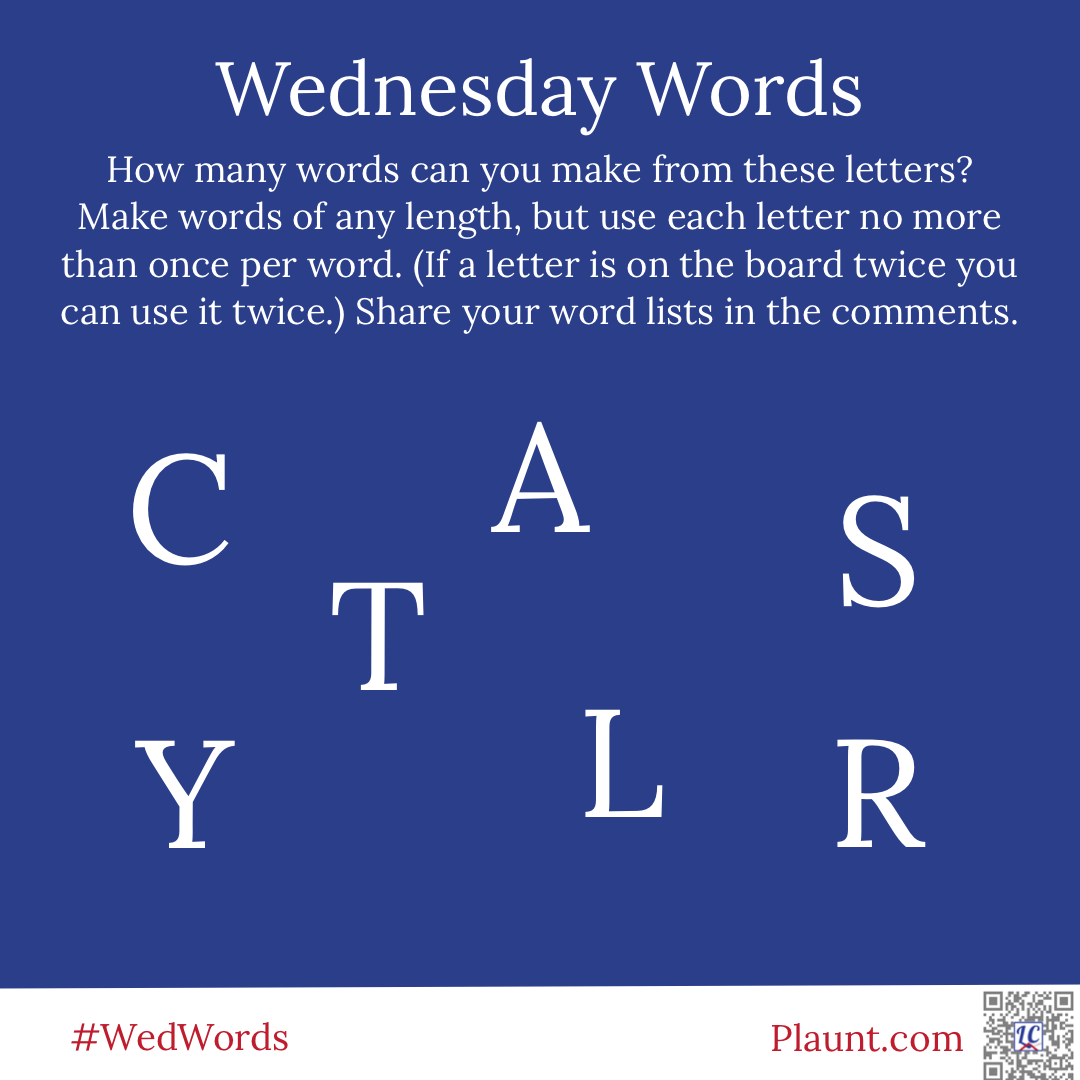How many words can you make from these letters? Make words of any length, but use each letter no more than once per word. (If a letter is on the board twice you can use it twice.) Share your word lists in the comments.

How many words can you make from these letters? Make words of any length, but use each letter no more than once per word. (If a letter is on the board twice you can use it twice.) Share your word lists in the comments.


I don’t have a PhD, but I do have a Master of Education degree, and the focus of my education and teaching experience has been language. Specifically the mechanics of language—grammar, spelling, and punctuation. I very likely have spent a lot more time studying grammar than Dr. Jess-Cooke has, and I had never heard of a fronted adverbial before either.
I have been a language teacher for almost three decades. I have taught parts of speech to many people, in large classrooms and in individual tutoring sessions, in two languages. This term was new to me.
It turns out that what it represents is not new; it just has a new name. When I went to school, “adverbial” was an adjective, and it has been used to mean “pertaining to adverbs” since at least the early 1600s. I don’t know when “adverbial” began to be used as a noun. The only entry in my etymological dictionary is for the adjective, and Google’s Ngram Viewer only shows the word without delineating the part of speech.
If we wanted to express that a group of words was being used as an adverb, we called it an adverbial phrase or an adverbial clause (depending on the function of the words in the adverbial grouping). If there was one single word, we called it an adverb.
Adverbs, and any grouping of words used as adverbs, are mostly used to modify—add more information to—verbs. They can also be used to modify adjectives and other adverbs. Where they are placed in the sentence does not affect their function. It may affect the flow and interest of your sentence, and they do need to be placed in a way that makes it clear what they are modifying, but there is no real-life quota for the percentage of adverbial phrases you should use or where you should place them.
I don’t think the use of the word “fronted” makes this term any clearer, and I think there are simpler ways to express it, but I won’t elaborate on that in this post. Here is the answer you’ve been looking for: A fronted adverbial is an adverbial phrase that is used at the beginning of a sentence.
If you search for ‘hendiatris’ on the Internet, you will find it easily, but if you search for it in a traditional dictionary, you probably won’t. It is possible that ‘hendiatris’ is a sort of back-formation from ‘hendiadys’, though it substitutes an affix rather than deleting one.
Since I mentioned palindromes in my post last week, I thought they should be the subject of my post this week. Share your favourites in the comments.